#One of its names is Ukraine
Explore tagged Tumblr posts
Text
The majority wanted me to order the book. And here it is.
So. Let's see what it's like.
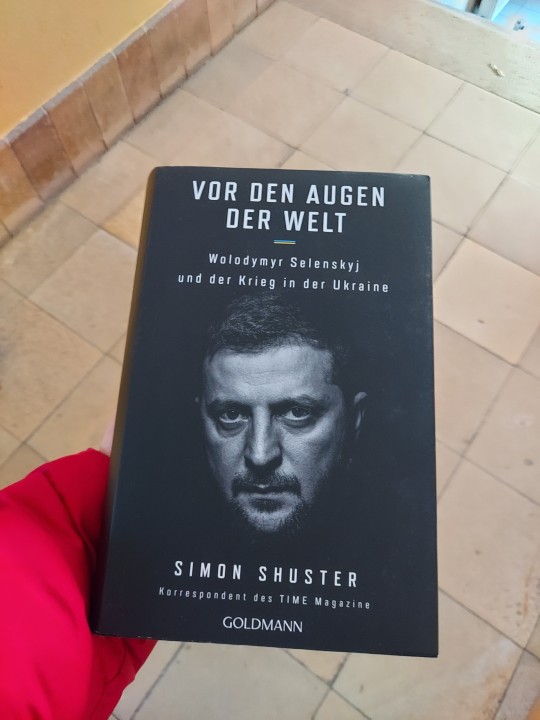
(First impression. Ton of pages. Still smaller than I expected (in size).)
#kudos for spelling his name right#interesting how they changes the german title and how its so different from the English one#in english its “the Showman”#the german title you could translate as “in front of the eyes of the world”#also the under title is translated just “Volodymyr Zelenskyy and the war in ukraine”#and not “inside the invasion ...”
12 notes
·
View notes
Text
April 1st is Election Day
Are you feeling sick, depressed, angry, outraged and all the other bad feelings about Donald Trump and Elon Musk this March? WELL FUCKO! its time to get to work, the first major test of the resistance to Trump-Musk is this April first! two special elections to the US House in Florida and a Supreme Court election in Wisconsin.
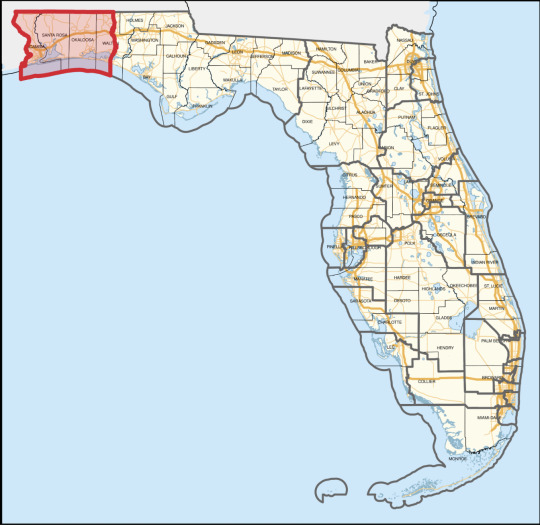

Florida's 1st and 6th Congressional Districts are having special elections on April 1st.
Right now the House of Representatives is 218 Republicans to 215 Democrats, flip these two seats, its 218-217, one vote away from being able to hold Trump and Musk accountable, and there are lots of Republican Congresspeople in their 70s and 80s.
The First Congressional District used to be well know sex criminal Matt Gaetz' district till he resigned hoping that'd mean The House wouldn't release a report on all his sex crimes, but the House released it anyways and Matt didn't get to be Trump's Attorney General. Any ways Trump endorsed Republican Jimmy Patronis, an ally of Ron DeSantis, which pretty much closed the Republican primary.
The Democrat is named Gay Valimont where ever you live in the US you can phone bank, if you live in Florida, or southern Georgia, Alabama, or Mississippi PLEASE! for the love of GOD! find time this month, one weekend to knock doors, and if you have a spare dollar, maybe don't buy something off Amazon? give it to the cause?
Give Volunteer Events
The Sixth Congressional District used to be Michael Waltz' seat till he resigned to be Trump's National Security Adviser, you know that gross bullying of Ukraine's President Zelensky? Waltz was definitely a part of planning that little show.
Any ways Trump endorsed well known lunatic Randy Fine to be the Republican nominee. Fine's not even in Congress and he's already threatening Democratic members he doesn't like.
The Democratic nominee is teacher Joshua Weil You can phone bank from anywhere and like I said if you live in Florida or southern Georgia please please give of your time and knock some doors. If you have a dollar to spare it'll go a long way.
Give Volunteer/Events
These will both be up hill fights, they are normally very safe Republican seats. However, these are not normal times, Musk and his DOGE are about as popular with the public as an untreated STI. Musk is firing veterans, and military spouses from their jobs, cutting back the VA, and Social Security, firing park rangers, air traffic controllers, nuclear weapon experts, civilian workers from the Defense department, Trump is purging the FBI and other law enforcement agencies. These are all things traditional Republican voters do not like. So you (and I) all have a chance to tell them all about it. No matter what happens on April 1st I don't want a single Florida voter to not know about these elections and how important they are.
Wisconsin!
Every bit as important as the special elections in Florida and maybe more so for the people of Wisconsin, Wisconsin is having an election for a Supreme Court Justice. The Wisconsin Supreme Court is right now 4-3 liberal to conservative. Liberal Justice Ann Walsh Bradley is retiring and the election will elect her replacement for a 10 year term.
Right now a case is before the Wisconsin Supreme Court to decide if the state should ban abortions under an 1849 law. If Conservatives flip this seat they will ban abortion in the state
The Conservative candidate Brad Schimel has made clear in very sexist language that banning abortion is a top issue for him. What's more Schimel is endorsed by Elon Musk. Musk is pouring MILLIONS of dollars into this race, it's the most expensive Judicial race in Wisconsin History thanks to Elon Musk and likely one of the most expensive judicial elections in American history. This is your chance to go head to head with Elon Musk and kick his ass.
The Liberal in the race, Susan Crawford, is endorsed by all the liberals on the court, the Wisconsin Democratic Party, and dozens of unions including the teacher's union. She's promising to keep abortion legal and to stand up to oligarchs like Musk.
If you live anywhere in Wisconsin this election is about you and your future and the next 10 years of your state, please volunteer. All of us can phone bank or postcard write from anywhere, And if you're in Minnesota, Illinois, Iowa, or Michigan's UP and you want to make Musk sad? find a weekend this month to go to Wisconsin and knock some doors.
Give Volunteer Events
Where ever you are you can and should make a difference, even if it's just to share this post to help it reach someone else. Its time to stop feeling bad and start fighting back.
#Politics#Political#us politics#american politics#Donald Trump#Elon Musk#Florida#wisconsin#abortion rights#elections
1K notes
·
View notes
Note
There is no magic "abolish the state" button, which is why I'm an anarchist, as "when the state has socialismed enough it will just magically poof away in a cloud of smoke" is the leninist position.
That is not the Leninist position, the Leninist position is and always has been that the state cannot disappear until the material conditions for its disappearance are achieved. The withering away of the state, first outlined by Engels, is not a magic process but one that proceeds from the abolition of class and the dissolution of the bourgeoisie.
How are you going to get rid of the bourgeoisie without a state? Are you going to simply ask them nicely to leave you alone? If you are organized and if your organization is suppressing the bourgeoisie as a class, then you have created a state, you have created an authoritarian imposition on the free organization of some section of the people. If you are not doing any of this, then the bourgeoisie who you have left unmolested will invariably come to dominate you once more.
Anarchists have always played word games to get around these simple facts. There are the practical anarchists who will admit to some amount of authority, but always with the caveat that theirs is *just* authority, *necessary* authority, and that is is the *unjust* authority that they condemn. Just authority is not the State, because the State is unjust, and so if they see an authority as just then it cannot be the State. Fair enough, you can call things by whatever names you like, but if you put these ideas in practice you basically end up with Leninism. You want to create dual power? You want to abolish the bourgeois state and replace it with a democratic organ of the working class? Well so did Lenin, and now you know why the Mensheviks accused him of anarchism.
Then there are the quite impractical capital-A Anarchists, who are adamant that anarchy means anarchy and that even voluntary hierarchy and submission to democratic authority is impermissible. Whether pacifistic or militaristic, they are generally unremarkable and ineffective at their goals because they eschew most effective forms of organization as ideologically impure. Even the most advanced anarchists, the CNT in Spain and the Maknovists in Russia, were plagued by economic confusion and disorganization. Their lack of discipline led to their downfall.
If you want to read more, here are some pertinent links:
1K notes
·
View notes
Text
It's actually honestly disgusting some of the responses I've seen around the LA fires.
Firstly - the whole eat the rich "I have no empathy as it's mainly rich people" shit is sickening.
The majority of people in LA are not the elite. Yes, a lot of rich people are affected, but these rich people aren't the elite that eat the rich is about. Most of these rich people pre fire are closer to homelessness than the elite.
Also the homes of people who aren't rich have been destroyed too. So many homes of middle class to lower class people have been burnt down.
California's first middle class black suburb is being burnt down.
Some of the reason as to why I think this rhetoric is spread around so much is a mixture of the general false perception that LA is a rich person city (its not) and the media making so many stories about different rich celebrities who have evacuated and homes have burnt down.
Also, yes, even those who are rich but not elite could rebuild a lot quicker than those who aren't but yall are also forgetting that it's not just the homes which are being destroyed with everything inside intact. Everything is burnt when a house is destroyed. Sentimental items are being destroyed by the fire.
Secondly - the different conspiracy theories are sickening.
I've already made a post debunking the one that Israel caused the fire through ecocide. And today I saw another one that it's all a ploy to prevent more names connected to p Diddy from being released as his mansion burnt down.
This is not some rich elite ploy to prevent more names being released. California has had bad wildfires for YEARS.
May I also remind everyone that the whole "elite group of people pulling strings to destroy shit to control the world" literally stems from the antisemitic conspiracy theory that jews control the world. Idc that people have replaced jews with people connected to Diddy, you're still using something which was popularized to oppress jews.
Another conspiracy theory I saw today was that the reason the fires haven't been contained is because firefighters donated equipment to Ukraine.
Like ah yes, the miniscule amount of equipment that fire stations have not yet replaced (as they replaced a lot) is totally the reason for the fires being so bad and not because of climate change (sarcasm).
A lot of yall harp on about needing to do more for the environment, yet when an event proving climate change is at an all time worse, you decide to ignore that it's climate change which caused it and that it's actually in fact a bunch of conspiracy theories.
You all need to buy the below and get a fucking grip on reality
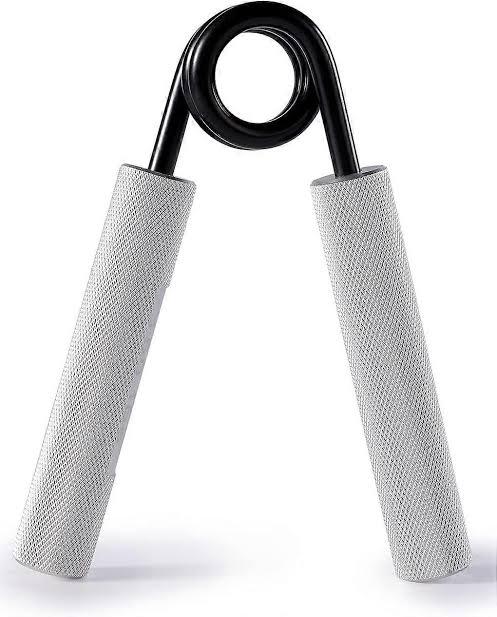
#la fires#palisades fire#i would tag all the fires but i cant remember all their names#antisemitism#ukraine#eat the rich
444 notes
·
View notes
Text
Part 1/? of How to Deal With the Next Four(ish) Years
Learn how to tell the difference between "their policies/rhetoric actively target me/a marginalized group" and "they have not been as successful as I hoped in protecting me/a marginalized group." I saw the rhetoric a fair amount pre-election that the Democratic Party and its policies were transphobic, that Biden failed queer people, etc. as a reason not to vote for Harris or for Democrats, and the reality is that the Democratic Party and Joe Biden have actually been pretty steadily implementing laws and policies to support and protect queer (including trans) people, and Republicans want queer/trans people to die.
If you want to protect marginalized groups, whether they're ones you're part of or not, you really need to start actively working on distinguishing between the two. And if you keep hearing that the Democrats are just as bad about a marginalized group in the US as the Republicans, actually look into that. What is the evidence? What laws have been introduced or passed by one party versus the other? What rhetoric do they use? What policies and regulations are being put in place?
And is the problem that the Democratic Party is "just as bad" or that they have not managed to stop Republican laws in red states?
None of this is to say that the Democratic Party is perfect, but in most cases only one party is actively working to harm or kill marginalized people, and it's not the Dems.
Understand the government structure that directly impacts you. Not every state or locality operates the same way, and you may have more or fewer layers of government over you with different levels of power. Do you have a town/city government and a county government, or just one or the other? How many officials are elected in your state versus appointed?
Part of that is also understanding what is controlled at the local, state, and federal level. If you're mad about a law or policy and want it to change, whose law or policy is it? Chances are, if it's about how things work for you, it's a state or local law rather than a federal one. Once you understand that, you can target any organizing efforts in the right direction.
Pick your battles. This is not to say that you shouldn't care about a lot of things, but trying to personally organize around everything will probably just make you ineffective and burn you out. Is it Palestine? Ukraine? Sudan? Environmental justice? Climate change? Immigration? Abortion? Queer rights and protections? Education? Native American rights? Criminal justice reform?
Understanding your own priorities can also help you determine what candidates you support and where you draw your red lines. I care a lot about public schools, but support for charter schools is not a red line for me in a politician. Being pro-life is.
But I'm also pragmatic--if my choice is a pro-life person who also wants all queer people to die and a pro-life person who wants to protect queer people, I will hold my nose vote for the latter rather than risk the former winning.
Start identifying what protections you and your loved ones might need that you can access now. Is it an IUD, a tubal ligation, or a vasectomy? Is it getting your legal name changed now? Is it establishing other legal protections such as power of attorney even if you're married?
Vote in every election. If you are an eligible voter, you should be a registered voter, and you should vote every single time. I think the only election I've missed in the last 5 years is the 2024 Democratic primary, and that's 50% because it was basically an uncontested race and 50% because I forgot when it was.
Primaries are where you get to have a say in who your candidate is--at all levels. Look at the policies of who is running and vote for who you want to win--whether because of policy, temperment, or any other reason.
But state and local elections are incredibly important, because they have a huge impact on your actual quality of life. Show up and vote. Vote on off years. Vote when it's just local. Vote for Board of Education, for water commissioner, for sheriff, for judges.
Voting is cheap, it's easy, and it does make a difference.
633 notes
·
View notes
Text
so there's a lot of rhetoric around delegitimising jewsih people as the primary target of the holocaust if not outright removing them from the conversation. there's a plethora of reasons but one thats being overlooked is russia.
state sponsored troll farms have been pushing narratives in order to push attention away from their actions in ukraine, syria and the sahel. when it comes to the holocaust it goes back to the soviet era propaganda about the Great Patriotic War which is what the soviets called world war two. it was taught in school books that slavs were the true target of the holocaust because 24 million soviets died during world war two which if you just look at raw numbers will absolutely appeal to the various flavours of tankies and antisemites (tho that venn diagram is nearly a perfect circle).
the problem with this as a historical fact is its largely fabricated to feed russian nationalism. firstly many of the soviets sent to concentration camps were from conquered territories like ukraine and were sent because they were jewish, not slavic. secondly the vast majority of deaths on the soviet side were due to colossal failures in command essentially throwing soldiers to their deaths, starving civilians to the bone and utter disregard for logistics. thirdly the underpinning of the 24 million slav deaths is ignore the ethnic diversity of the soviet union and ultimately push the narrative that it was mostly russians who suffered in ww2. cossacks, chechyens, ingush, siberians, everyone suddenly became soviet which meant slav which meant as head of the republics they were then renamed as russians.
they all became russian to the nationalist history. all so russia can claim to be the ones who defeated the nazis while the satellite states sat on their hands. which justifies russian invasion in order to 'save' the baltics and eastern europe and ultimately russian control because the locals couldn't be trusted to do it right.
lastly the whole point of the holocaust was the eliminate the jewish people and anyone the nazis blamed them for corrupting, lgbt people were a jewish plot to pervert the family order, the communists were a jewish plot to take over the world (even tho the soviets were pogromming their jews at the same time), disabled people were a jewish plot to poison the aryan genes. this is why even when the nazi war effort was on its knees and berlin was in sight of the allies, they were still sending jews to the camps with resources that could have been used for defense. because the point of the war wasn't just to conquer europe. to the nazis the goal of the war was the exterminate the jews.
this is how numbers can be used to lie so anyone using numbers to 'debunk' the holocaust is pushing a dangerous message. this is how you will know its russian disinformation when the rhetoric moves beyond it wasn't about the jews and starts trying to name who the holocaust was actually about
251 notes
·
View notes
Text
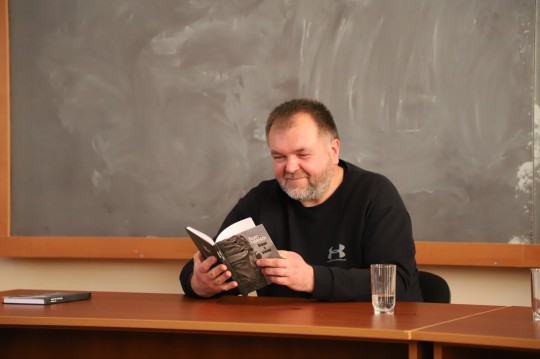
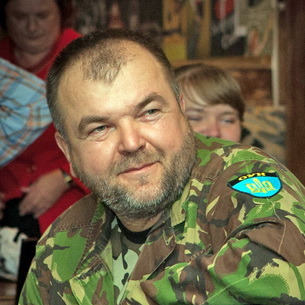
Borys Humenyuk🇺🇦 Ukrainian writer, poet, soldier. Member of the National Writers' Union of Ukraine since 2006. His works are not in the Project Nedopysani because he has been MIA since Dec. 2022.
Read his "Zapovit" ("Last Will") that I translated into English:
Today, we dig the earth again,
This hateful Donetsk earth,
This hardened, unyielding earth.
We press against it,
We hide inside it,
Still alive.
We shelter behind the earth,
Sit quietly in it,
Like little children behind their mother’s back.
We hear its heart beating,
Its weary breath.
We are warm and safe,
Still alive.
Tomorrow, we will be dead.
Many of us, maybe all.
Do not take us from the earth,
Do not tear us from our mother.
Do not collect our remains from the battlefield,
Do not try to piece us back together.
And—please—we beg you,
No crosses, no memorials, no stone plaques.
We do not need them.
They are not for us—they are for you,
The grand monuments you build in our name.
Do not carve our names anywhere.
Simply remember:
On this field,
In this earth,
Lie Ukrainian soldiers—
And that is all.
Do not return us to our parents.
We do not want them to see us like this.
Let them remember us as children,
As mischievous boys
With slingshots and bruised knees,
With bad grades in school,
With pockets full of apples from a neighbor’s tree.
Let them hope we will come home one day,
That somewhere, somehow, we still exist.
Do not return us to our wives.
Let them remember us as handsome men,
The ones many girls liked,
But who belonged to them alone.
Let them remember our burning lips,
Our hot breath,
Our passionate embraces.
Let them not touch our cold foreheads,
Our frozen lips.
Do not return us to our children.
Let them remember our warm eyes,
Our warm smiles,
Our warm hands.
Let their trembling lips never touch
Our lifeless fingers.
Here, in these trenches,
Which today are our shelter
And tomorrow will be our graves—
Bury us.
No farewell speeches.
In the silence after battle,
They always seem misplaced,
Like shaking a fallen soldier
And begging him to rise.
No requiems.
We already know where our resting place will be.
Just cover us with earth,
And—go.
It would be good if a field grew there,
If the rye swayed in the wind,
If a lark sang in the sky,
And the sky—
So much sky—
Can you imagine what kind of bread will grow
On a field where soldiers lie?!
(In our memory, eat the bread from the fields
Where we fell.)
It would be good if there were meadows,
With many, many flowers,
A bee over every bloom.
If in the evening, lovers came,
Weaving flower crowns,
Making love until dawn.
If during the day, young parents
Came with their children.
(Do not stop the children from coming to us.)
But that will be tomorrow.
Today, we are still digging the earth,
This dear Ukrainian earth,
This sweet, gentle earth,
Writing together, with our entrenching tools,
On its body—
The last poem of Ukrainian literature.
Still alive.
(Project Nedopysani - i.e. Project Unfinished Writing Works - is a volunteer project that collects works of Ukrainian writers and poets that died in Russia's war against Ukraine. Most of those writers have not yet been recognized or even published anything yet. So they become known only after they are KIA - when their relatives or comrades pass their writing notes to volunteers who run the Project Nedopysani. The Project was created to forestall something that has been happening for centuries when Russians attacked Ukrainian lands before, murdering the indigenous population and burning and destroying all works in Ukrainian language - thousands of Ukrainian artists and writers and their works lost to history)
Listen to the work in Ukrainian, read by Borys Humenyuk:
#ukraine#russia is a terrorist state#russian invasion of ukraine#україна#укртумбочка#укртумба#укртамблер#ukrainian culture#ukrainian literature#borys humenyuk#literature#poem#translation
200 notes
·
View notes
Text
Seen an interesting thing:
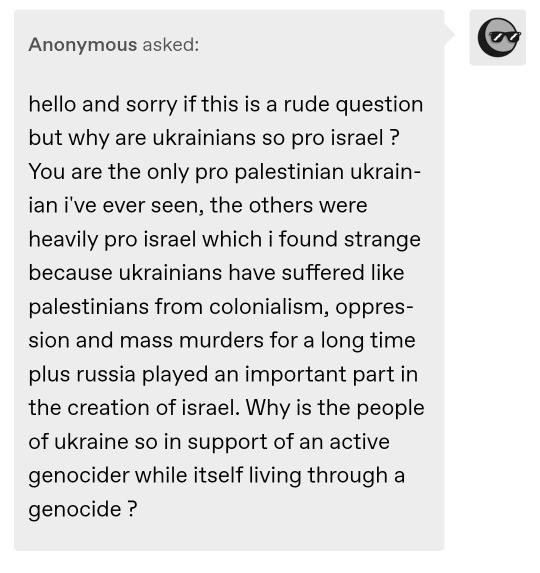
It's not really clear what anon means by "pro-israel". "Hating on Arabs/Muslims" or "Hating on genocide of Jews"? Let me remind you,
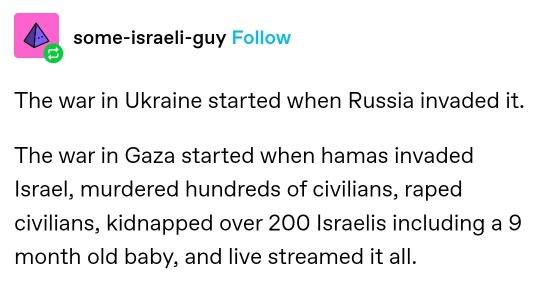
Ukraine is historically the land where Jews could live peacefully until the notorious russian empress Catherine the Second put the Sedentary Band on Ukraine, Belarus and Lithuania. That meant that Jews were deported from villages to cities, the Jews had to take russian-like surnames and names in order not to be arrested or killed - and then, russia organized pogroms all over those cities, including Vilnius, Kyiv, Miensk and Odesa. Jews could not leave the Sedentary Band without being arrested and/or killed. Russia put all sorts of bans and restrictions on Jewish traders, too. As you can see, the soviet union idea has much deeper roots than it seems.
That's why, after the Sedentary Band was cancelled, a large amount of Jews fled away: some to Poland, some to America, some to russia, some to Palestine. In russia, which is originally the biggest antisemit, life sucked pretty much, enough for many already russian-speaking Jews leaving it later and once again migrating to Poland, America, Palestine, etc. So technically, russia, as the biggest sponsor of Hamas, is at fault for both murders of Jews by Islamists and Jewish "occupation" of Palestine, lol.
After soviet pogroms, Holocaust happened, which was followed by even more soviet pogroms, actively financed by russia (go read about Lithuanian Jewish actor Andrei Mironov or Ukrainian composer Isaac Iosifovich Schwartz) - and unfortunately, some Ukrainians actively participated in killing Jews. After Ukraine has gained its independence from russia in 1991, we made sure that Ukrainians will never forget the misery, grief and pain which was brought upon Jews, both by Nazi, communists and just Ukrainian antisemitic collaborants. When I was a kid, every year, we had excursions to Babyn Yar museum - the place where hundreds of hundreds of Jews, including kids and their moms, were brutally murdered.
Ukrainians are "pro-Israel" because we understand what it's like, to be genocided, to be victim-blaimed, when the whole world turns its back on you just because your enemy is richer and more popular. Ukrainians don't hate Muslims or Palestinians - Ukrainians are disgusted by mass murders and rapes Hamas brought upon the Jews and Druzes and random tourists, some Ukrainians actually were killed on October 7, too. Ukrainians know what "Never Again" means. Ukrainians hate rapists and murderers. That's why we are "pro-Israel", бо інакше це треба бути повним дебілом (although it's much more correct to say we are "pro-Jews" since most of us is totally unaware of whatever happens in Israeli government). Despite understanding the anger of those Palestinians, who have to live through war and lose their loved ones because of their idiotic Hamas, we, as a currently genocided nation, actively support the right of Israel to strike its rapist and mass murderer back. We are also thankful to Israel for seriously damaging Iran's production of "shaheds" which kill Ukrainians almost every day.
The idea itself that Ukrainians support Israel because some Israeli happen to know russian language is insane and sounds like a conspiracy theory. Those Ukrainians who believe that "evil zionists are committing genocide" are just either chronically online or those, who didn't study school history properly, or those with prorussian mentality, or ✨️businessmen✨️. Or all of these together. Which is not a lot of people, thanks God. Hope this helps.
P.S. We don't hate Muslims and Arabs. Ukraine has pretty good relations with Turkey, UAE, Egypt, Saudi Arabia, etc. Many Ukrainians I know are fond of UAE in particular because people there are hardworking and like to study and apply the knowledge to make the world better.
278 notes
·
View notes
Text
One thing I think that happens as we try to defend our existence in not only one specific land but globally as well is using the very real identities some Jewish people have as stand-ins for laughable stereotypes .
Two examples-
"When will they learn that not every Jew is some white girl named Rachel from Brooklyn lolol?"
"Not everyone came from Poland so why would we go back there?”
Absolutely, the diversity in Jewish culture is not as represented and discussed as it should be. However, that shouldn't find its place in the discourse here. yeah, there's more people than what American media depicts as the be-all-end-all of Jewishness. But that girl Rachel in Brooklyn is terrified and her community is being constantly threatened. Her "whiteness" or "Brooklynness" doesn't negate that. At all. Often, it excuses the damage when it does happen.
And what about those people who came from Poland or other Eastern European countries? Russia, Ukraine, Lithuania, etc. Whose grandparents escaped- or those whose family didn't ? Where they were always considered foreigners? Countries that were so influenced by its Jewish residents that now have so few because those same governments and people murdered them ? And in that case, would it be acceptable for the descendants of people with barely a connection to where their ancestors stayed in diaspora to go back to?
I know people don’t mean it like this. This is such a weird time with everything that’s been going on. I’m not trying to go after people coping with bad jokes or quips. But let’s not canabilize each other ? Let’s hold everyone and their backgrounds with equal value and love as we fight this plague of antisemitism .
#dropping this post to Jumblr then shouting - SCATTER!#jumblr#jewish#jewblr#jewish tumblr#fromgoy2joy thoughts#antisemitism mention#antisemitism isn’t a cute look#leftist antisemitism#Jewishness#tw antisemtism#antisemitism tw#antisemtism#ashkenazi#antisemitism
553 notes
·
View notes
Text

This is seriously a new level of being a douchebag.
- You directly undermine Ukraine's defense effort by turning Starlinks off for the Ukrainian military right in the middle of important operations and letting the Russian military use it despite U.S. sanctions
- You spread the most idiotic "nuclear war" takes whispered to you in the ear by the Russian ambassador in the U.S. and even Putin himself
- You give voice and listen to the most insane conspiracy theorists talking about "proxy war", "biolabs", "deep state", and "money laundering", as well as blowhard demagogues and media con artists openly praising Putin and his regime
- You use your multimillion-stong global audience to directly propagate the Ukrainian surrender to Russia's war of aggression and publicly ridicule Ukraine's calls for international defense aid in its war against one of the world's largest military powers
- You directly undermined U.S. aid to Ukraine and publicly called for "killing" a long-belated aid at the U.S. Congress despite Ukraine running critically low on air defense and munitions because you and your arrogant yes-men had decided that "Putin just can't lose"
And when the situation deteriorates, particularly due to months-long delays in the most essential and urgent defense aid, this shameless douche says "I did predict it" (while again completely ignoring the fact that POLITICO makes it perfectly clear that Ukraine is 'heading for defeat' due to the West's failure to send weapons to Kyiv).
No, Elmo, you did not 'predict' anything.
You precipitated this.
This war started with Ukrainians praising you as the free world's techno hero and naming streets after you.
Now you have degraded yourself to being one of Russia's key useful idiots amid the most terrible and the largest European war of aggression since Adolf Hitler.
Keep listening to the likes of Ian Miles Cheong and David Sacks and dive deeper into your delusions and absolute moral bankruptcy.
We in Ukriane have seen our share of smartasses giving us between 48 and 72 hours two years ago.
In this war, we've been through so many impossible things that you can't even imagine, let alone "predict".
We will overcome this too -- and will get the aid, will survive as an independent nation and a democracy, and will bring peace back to Europe by derailing Russian aggression.
(c) Illia Ponomarenko
431 notes
·
View notes
Note
I am a little scared to write characters with different backgrounds, like Russian characters in the CoD franchise, because I'm afraid a Russian person will see it and be like, "What the fuck is this" and laugh at it maybe 😭 So I have to ask, do you ever find yourself judging fics based on how they portray the characters and the language? Like "this doesn't fit well" or "that's not how it works" type of stuff.. Are there any deal breakers, something you despise in fics, or maybe even advice for writing Russian characters... Thank you in advance, have a great day! 🩵
Hey comrade! This is a good question! And I can totally relate; not just to writing non-Russian characters, but even writing Russians from CoD is intimidating, because they are much older than me and witnessed a lot of historical and cultural changes in the country (even a whole another country if we think that at least Nikolai was born in USSR) that I haven't, and trust me, times haven't stopped being crazy here for the last 30 years or even more, so for me not having witnessed the 90s or being a baby in 2000s is a reason to be scared shitless writing for them, cuz fuck if I know how a person that lived through those times thinks.
All that to say, I think it's completely normal to feel awkward writing characters with backgrounds you're not familiar with, and also it's not a big deal if you get stuff wrong sometimes. I mean, isn't there like a whole bunch of fics about task force 141 and the "tapping out" ceremony that seems to exist in USA army only? People still enjoy them and no one was hurt by it. It's fiction and art, and first and foremost we want you to enjoy creating it; moreover, you are doing it and sharing it for free, so every decent person will always be grateful and supportive, and if anyone is coming at you aggressively for getting something wrong, you can tell them идите нахуй and block them. Mocking an artist that put effort and love into a piece of art is one of the worst things one can do.
(sorry this turned out longer than I expected so I'm hiding it under the cut). CW!politics and heavy themes, somewhat of a rant. I tried to summarize in the end and give a few tips so if you want to skip the rant, go down.
So me and my Paris (@nrdmssgs) came togther to make a list of stuff that might catch our eye or turn us off from reading a fic. Keep in mind that these are just opinions of two people! And I know for a fact that some Russians will not agree with me on some of these. So again, my main tip is not to overstress; we are genuinely glad when Russian characters get recognition despite all the negativity often surrounding them.
First, I'll just say, there are a lot of things that irk us in the games themselves. This goes not just for weird Russian accents or sometimes broken Russian altogether; I personally am very displeased with how freely (and wrongly, lol) they use the term "gulag" (ГУЛАГ) there. First of all, it is not a synonym to prison/camp, it's the name of the government agency that was in charge of running labor camps in USSR, so calling the camp itself this word is simply incorrect; second, it's a big tragic page in history, so throwing it around willy-nilly as some oooh scary prison place where characters in a pew pew game are put and can escape just feels insensitive to me. Generations of people whose countless families were hurt by this system are very much alive right now and it is a raw wound unfortunately, and the government is very much refusing to acknowledge this tragedy in its fullness. So there's that. There's also way too good-looking Makarov that spent who knows how much time in solitary confinement (we have people actively dying in solitary right now in much shorter time), there's Milena with a single bank account (show me one Russian oligarch that doesn't have their money shoved in 100 different places, uh-huh), there's Yegor Novak who is Ukrainan, but speaks Russian (yes, considering that he was born in USSR, he most likely speaks both languages, but erasing his identity is still problematic). So you see, there's a lot of shit to combat in canon already, and it's worth spending time looking into some of these things. Now to the fics!
I will say, I do notice of course when a Russian character is written by a non-Russian person that doesn't know much about Russian language/culture/mentality/history/whatever. And while I understand that it's hard and won't throw a fic away for not getting every little thing right, there is stuff that catches my attention.
The most obvious would be the language, of course. Russian is grammatically much more complicated than English and number one giveaway are mistakes in grammatical cases/genders. Even my good comrade here who knows Russian very well and surprises me with impeccable use of complicated constructions that show they understand some nuanced connotations/usage of words, even they often make mistakes with genders of words. And I can't blame them, for a native English speaker it is a new concept! But this, and also just the sentence structures, incorrect word choice (again, connotations are key) are always jarring in text. Usually I just skim over it and forget in the next sentence, sometimes it does make me laugh, but like. I'm not gonna make fun of anyone for making a mistake in a language, I appreciate when people make effort. But I do encourage everyone to send their Russian text to someone who can proofread it (me, for example, DMs and askbox always open). And if you really want to do it on your own, maybe don't just rely on google translate and such and try to do it with a dictionary and some base-level grammar lessons so you can make sure the endings of the words are alright, at least. Then we can talk about the difference between "blyat'", "blyad'", "blya", "blyadina" and "blyadstvo" :D
Another thing I do always have a quick upset sigh about is when people call borsht a Russian soup. No it's not, it's Ukranian. We do eat it a lot, yes, and it's not inherently bad or wrong to write a Russian character eating/cooking it, but it is nice when people do not add to the appropriation of Ukranian culture that's been going on since for-fucking-ever. Same goes for unfortunately many other cultures that Russian imperialism tried swallowing, so it's always better to google it and check. And just food in general, maybe spend a little time looking up what's the difference between pel'meny and varyeniky or what's okroshka. It's always an amazing experience when someone gets such details right! And an even better experience when you don't erase other Slavic or even Eastern European identities, brushing everyone under "Russian" rug. We are definitely nor a homogenous crowd! Moreover, not everyone born in Russia (and especially USSR) will be Russian. Looking into different ethnicities and nationalities that live here is just interesting if nothing else, but also very very important after centuries of opression.
I also have some non-serious beef with this magical "Siberia" western comrades love writing about, I touched on the topic here. An amazing impression is when people use less broad geographical names or look at less overused places. Did you know that Natalia "Raptor" Orlova is from Kamchatka? It's such a rich region with a lot to tell about!
What I do definitely dislike and it can turn me off from finishing the read at all, is insensitive writing of the characters themselves in terms of their background. It's complicated since I myself am not patriotic at all and I couldn't tell you for the life of me what it means "to be Russian", but it just. You can feel when a person thinks in stereotypes, you know? Like somewhere I saw something, I won't give a direct quote, but the main idea was that Russian/Slavic men all 100% have a breeding kink, and it was worded in a way that kinda felt like, hm, like a bit dehumanizing? Making them out to be these ooga booga barbaic cavemen? And yes, there is a lot to be said about Russian men, much of it very not good, and there is NOTHING wrong with writing a Russian character with a breeding kink, but it felt not nice to read that sentence, so just maybe after you write your piece do some introspection to make sure you weren't dipping into that kind of portrayal out of prejudice. If that's the effect you went for storytelling/your personal enjoyment cuz you like them ooga booga? I won't say a thing. Also the whole vodka/balalaika/ushanka/whatever bullshit, not entirely untrue, again, especially the vodka one, but if you write Nikto drinking kvas (which is non-alcoholic, okay, but still) or baltika beer instead of vodka, you'll make me happier, because it's like a signal "hey look I know a bit more about your culture that a James Bond movie intro showed me once". And in the next scene I'll forgive you even him riding a battle bear with vodka and balalaika in hand.
Coming back to the "barbarization" of Russian men in fics, it irks me a little when people lean too much into the whole Russian bandit/mafia stuff, and there are two characters that suffer from it, but each a little differently, the most. First is Nikolai, and while yes, he is a crime lord of sorts and he has that goddamn golden chain (which most Russian people or at least women find absolutely horrid and oh we do not come near men sporting those irl), I think people often write him... not intelligent enough? Too gruff and rough? He's an intellectual. Well-read, well-spoken, cultured. Level-headed. Whenever people write him too much like a 90s bandit, my heart breaks a little. But then again, I know Russian people that lean into the same set of stereotypes when writing him (but those same people have a lot of other uhhh xhenophobic tendencies that show when talking about other characters so I wouldn't rely on their views).
And then there's probably the biggest pet peeve of mine. Vladimir Makarov. Now, here is a big big disclaimer: YOU CAN WRITE WHATEVER YOU WANT IN YOUR FICS!!! We are already romantacizing military men that none of us (I hope) would approach irl; and if you want to write Makarov or Nikolai or whoever else in a certain way because that's what hits the spot for you, just do it. You want yandere Makarov or mummy issues Nikto or whatever else your heart desires? Go for it. I will be the first one defending your right to write it with a crowbar in hand, even if I myself would never read such a fic. So this here is entirely MY PERSONAL ISSUE. Deal? Deal.
I see it a lot here on tumblr (mostly in x reader fics) and it actually bothers me a lot, but when people write Makarov as this edgelord dark mafia boss. It just misses the point so much. He's an ultra-nationalist, a head of a PMC. They are not mafia, I would honestly argue that they're much worse. I get that they cast a very attractive man to play reboot Makarov and honestly the og Makarov too; I get that villains are the hot thing to be attracted to (sorry if I sound bitter, this is a separate problem I have with fandom and it doesn't matter rn), but Wagner (PMC that Konni is heavily based on) is a real life horror that is still existing even though there have been like structural changes. And they killed a lot of people and had enough power to threaten to overthrow the government so very recently. Rusich (another nationalist military group) is still active and doing horrible things and proudly reporting them online. Smaller far-right pigs are out in the streets doing horrible things. And a lot of it is (not so) subtly encouraged by the government. A lot of it is actively used by the government to gain more power, kill more people, instill more fear. It's a reality we live in, and to me seeing Makarov portrayed with none of that nationalism in sight and with all the allure of a dark romance novel mafia boss is... honestly, painful. Feels like a slap in the face, to be honest, and while I understand that this is the kind of nuance you can't just realize out of nowhere if it's not something you live around and that it's all fiction, it just is really, really hard to read for me. He is not just a complete crazy Joker-type freak, he's not a cool sexy mafia boss, he's a fucking nazi terrorist that can and will be paid by certain people in power to do their dirty work.
In the same route, but luckily I haven't seen it anywhere besides a certain group of Russian CoD fans (which is even more terrifying considering the political implications), but anyone who writes Barkov as a hero/in a positive light - fuck you. Just fuck you. He has interesting/attractive traits as a character, yes, I'm not saying you can't write about him, looking into him from different perspectives, simping for him if you want; but again, just spend some time reading up on recent history and politics that inspired the whole Urzikstan situation0 - and do it all with nuance. Or with a disclaimer that you don't support genocide at least, lol, cuz I'm telling you, I've seen people that made me scared.
However, once again, if you really want exactly that - ignore MY PERSONAL opinion and write it. I am just a gorilla on tumblr, my opinion is not the centre of the world. But what I do consider not a taste issue, but a deeper issue, is writing REAL PMCs and the likes of those in positive light. If anyone with a "Wagner OC" sees this post, just know, I would probably spit in your face irl. Making made-up Makarov go kiss kiss uwu or whatever irks me personally, but I can close the tab and let the author be; I'm sure many people have same opinion about Graves whom I write much more affectionately than some would prefer. But the real shit? That's a hard line.
A quick addition, back coming back to the "barbarization", just portraying Slavic characters being oh so very mesmerized by the !!!wonders of western civilization!!! is funny. There are definitely moments like this, but not as much as you think. Believe it or not, we actually don't live in bear caves.
This got way too long and dark, so let's finish on a lighter note. Russian characters celebrating some very non-Russian holidays (like Thanksgiving or catholic Christmas, even though the second one is not as bad) is funny, when it doesn't have much explanation (like them celebrating it with someone who actually does). "Suka blyat'" is funny, because it's often used where a simple "blyat'" would suffice.
Summarizing, here are general semi-short tips how to write Russian characters:
get your Russian proofread by someone who actually speaks it or at least don't fully rely on google translate. check your cases and genders!
especially if you use cusswords. it's an amazing characterization tool if you manage to use it right, so putting effort into it is always worth it
don't lean into stereotypes. they are partially true, but we kinda can tell when you do that intentionally and with nuance and when you don't know anything beyond them
be mindful about characters' identities and spend a little more time to make sure you are not writing someone else's stuff as "Russian". for the lack of better analogy, it's like mixing all Latin American identities together and writing them all as uhhh Mexican. we don't want to claim others' culture and others most definitely do not want to be erased again
be careful about the "barbarization" of your Slavic characters. sure, someone like Maxim "Minotaur" Bale won't strike you as the most intellectual individual (love you Max), but be intentional with it and don't just make every Slavic man go ooga booga but in Russian
didn't touch much on Russian/Slavic women, but be careful around the whole "money-hungry" stereotype
read up on political shit surrounding your characters. whether you like it or not, Russian people have been shaped by a lot of recent/current political happennings, so missing out even on general understanding of what your character witnessed/what their political views are can ruin a lot of characterization
Russia is fucking huge and does not consist just of Moscow and abstract "Siberia". the amount of cultures, confessions, nature stuff etc in the country is insane. not all Russians are orthodox Christians, but also - many of them are. and also - church was under fire in USSR so this is a separate layer of cultural shit you might want to consider
read Russian literature if you really want to write Russian characters a lot, it'll help you catch a feel of some very specific things like our yearning. it's a very specific thing that if you get right will give me a reading orgasm
same goes for Russian songs. also just don't underestimate the role of music in Russian life!
try to look up Russian "pop culture" (it feels kinda wrong to call it that, but I dunno how else to call it). if you can make your Russian character make an appropriate reference to a movie or say a Russian saying we actually use, it'll be amazing. but it's like level impossible i think so don't give yourself a headache over this, this is just that extra spice that will have me scrolling through your profle suspecting you're actually secretly Russian yourself
watch Soviet/Russian movies to get a better understanding of the vibe, not just what Hollywood portrays!
looking into architecture can be an interesting way to approach a character. we went through many different unique architectual styles, so if you're describing a character's home, it'll be a very cool move to specify what kind of apartment building they live in, for example
but most importantly remember: it's art you do for yourself first and foremost. don't take any of it as a strict guide you'll be punished for straying away from! we REALLY appreciate you writing for these characters, and you showed you put more thought into it than some of Russian comrades I know <3
and if you have specific questions, never be afraid to ask me or anyone else you know can help.
I hope I didn't scare you even more with this all, lol, I genuinely do appreciate you coming to me for advice, it means a lot when people show interest and effort. If you feel comfortable enough, send me/tag me in your fics, I'll be glad to read them and share with comrades that will enjoy them! From Russia with love ❤️❤️❤️🦍
#juju's replies#gorilla in the snow#cod#call of duty#nikolai cod#nikto cod#makarov cod#russian#writing tips#fuck these tags man i'm too tired to be arsed lol
84 notes
·
View notes
Text



The Golden Rose Synagogue is one of the oldest synagogue in what is today Ukraine. Its builder between 1580 and 1595 was Yitzhak ben Nachman (or Izak Nachmanowicz), the local Jewish counselor of Stephen Báthory, Prince of Transylvania and King of Poland, and its master the Italian Paulus Fortunatus, who raised a large number of Renaissance buildings all over Poland and was known by his guild nickname Paweł Szczęśliwy (Paul the Fortunate). The synagogue was named after the wife of Nahman, Rosa.
In 1941 it was closed down and in 1943, at the liquidation of the ghetto, blown up by the German invaders. Its ruins have lain untouched ever since. After the downtown of Lviv was declared World Heritage (1998), the city authorities gave permission to a private investor to build a hotel on the property, which would have meant the final destruction of the remains. On an international protest, however, the permission was withdrawn. The site has since been waiting for a positive turn of its destiny behind a metal construction plank.

193 notes
·
View notes
Text
REMINDER TO BOYCOTT EUROVISION
Here's a quick run down of everything they've done + why you should boycott
Despite banning Russia for its actions in the Russia-Ukraine war, Israel is still in the contest (despite committing war crimes, attacking Gaza with genocidal intent etc)
"But Hamas attacked first on Oct.7" - Then why is Israel also bombing southern Lebanon if Hezbollah and the Lebanese government aren't involved?????
Israel often uses ESC as a platform for propaganda
One key example is their promotions for their 2019 broadcast, where they tried to turn attention away from the occupation and portray the country as a liberal haven of democracy, with the lines "... it's a land of war and occupation. But we have so much more than that!" and pointing out its the only place in the middle east where "gays are hugging in the street". (as if the rest of the Levant INCLUDING PALESTINE isn't actually relatively chill when it comes to gay rights)
Another example is them sending an Ethiopian Jewish singer to perform a song called "Set me Free" the same year they stormed Al-Aqsa during Ramadan, which seemed to be very intentionally trying to shift the narrative away from Israel as a colonial occupier, and more as a persecuted people who have finally found safety
As well as the issues with Israel as a competitor, ESC is SPONSORED by MoroccanOil, an Israeli company (ik the name is misleading, but speaking as a Moroccan Israel just really loves to steal our culture while treating our people they stole like shit [I could go on an entire rant ab this but I won't])
So what this means is we can't just boycott this year and then forget about it the next. Until Israeli presence is completely removed from EUROVISION, your views and your money will be funnelled to support an Apartheid regime. I already know people who are still watching Eurovision despite not supporting the occupation, because they love the artists and the spectacle. But no spectacle is worth supporting an Apartheid regime. The best way we can help the Palestinians is by making Israel a pariah state, and pressuring politicians to cut all their funding. That way they won't be able to put down uprisings and maintain the brutal police state they have - at which point they can only resolve the conflict peacefully and end occupation, or find themselves in the throw of a violent revolution. It was these strategies that ultimately helped end the apartheid regime in South Africa, and it is these strategies which can help end Israeli apartheid.
#eurovision#esc 2024#palestine#israel#free palestine#apartheid#moroccanoil#eurovision 2024#eurovision 2019#set me free#europapa#joost klein#eden golan#hurricane
475 notes
·
View notes
Text
"When Francois Beyers first pitched the concept of 3D ocean farming to the Welsh regulators, he had to sketch it on napkins.
Today the seafood farm is much more than a drawing, but if you walked along the Welsh coastal path near St David’s, all you’d see is a line of buoys. As Beyers puts it: “It’s what’s below that’s important.”
Thick tussles of lustrous seaweed suspend from the buoys, mussels cling to its furry connective ropes and dangling Chinese lantern-esque nets are filled with oysters and scallops.
“It’s like an underwater garden,” says Beyers, co-founder of the community-owned regenerative ocean farm, Câr-y-Môr. The 3-hectare site is part of a fledgling sector, one of 12 farms in the UK, which key players believe could boost ocean biodiversity, produce sustainable agricultural fertiliser and provide year-round employment in areas that have traditionally been dependent on tourism.
Created in 2020 by Beyers and six family members, including his father-in-law – an ex-shellfish farmer – the motivation is apparent in the name, which is Welsh for “for the love of the sea”. ...

Pictured: Drone shot of Câr-y-Môr, which is on the site of abandoned mussel farms. Image: Scott Chalmers
Ocean farming comes from the technical term ‘integrated multi-trophic aquaculture’, which means a mixture of different seaweed and shellfish species growing together to mutually benefit each other. But it’s not just a way of growing food with little human input, it also creates ocean habitat.
“You’re creating a breeding ground for marine animals,” explains Beyers who adds that the site has seen more gannets diving, porpoises and seals – to name a few – since before the farm was established.
Ocean farms like Câr-y-Môr, notes Ross Brown – environmental research fellow at the University of Exeter – have substantial conservation benefits.
“Setting up a seaweed farm creates an exclusion zone so fishermen can’t trawl it,” explains Brown, who has been conducting experiments on the impacts of seaweed and shellfish farms across the UK.
Brown believes a thriving ocean farming industry could provide solutions to the UK’s fish stock, which is in “a deeply troubling state” according to a report that found half of the key populations to be overfished. “It would create stepping stones where we have safe havens for fish and other organisms,” he adds.
But UK regulators have adopted a cautious approach, note Brown and Beyers, making it difficult for businesses like Câr-y-Môr to obtain licenses. “It’s been a tough old slog,” says Beyers, whose aim is to change the legislation to make it easier for others to start ocean farms.
Despite navigating uncharted territories, the business now has 14 full-time employees, and 300 community members, of which nearly 100 have invested in the community-benefit society. For member and funding manager Tracey Gilbert-Falconer, the model brings expertise but most importantly, buy-in from the tight-knit local community.
“You need to work with the community than forcing yourself in,” she observes.
And Câr-y-Môr is poised to double its workforce in 2024 thanks to a Defra grant of £1.1 million to promote and develop the Welsh seafood industry as part of the UK Seafood Fund Infrastructure Scheme. This will go towards building a processing hub, set to be operational in April, to produce agricultural fertiliser from seaweed.
Full of mineral nutrients and phosphorous from the ocean, seaweed use in farming is nothing new, as Gilbert-Falconer notes: “Farmers in Pembrokeshire talk about their grandad going down to the sea and throwing [seaweed] on their farms.”
But as the war in Ukraine has caused the price of chemical fertiliser to soar, and the sector tries to reduce its environmental impact – of which synthetic fertiliser contributes 5% of total UK emissions – farmers and government are increasingly looking to seaweed.
The new hub will have capacity to make 65,000 litres of sustainable fertiliser annually with the potential to cover 13,000 acres of farmland.
But to feed the processing hub, generate profit and reduce their dependency on grants, the co-op needs to increase the ocean farm size from three to 13 hectares. If they obtain licences, Beyers says they should break even in 18 months.
For now, Beyers reflects on a “humbling” three years but revels in the potential uses of seaweed, from construction material to clothing.
“I haven’t seen the limit yet,” he smiles."
-via Positive.News, February 19, 2024
#wales#welsh#ocean#marine biology#aquaculture#marine life#marine animals#seaweed#sea scallops#oysters#united kingdom#uk#conservation#conservation news#overfishing#environmental news#farming#sustainable agriculture#sustainability#ocean farming#good news#hope
491 notes
·
View notes
Quote
Ukraine has much less of a problem with the far right than does Russia, or for that matter than the United States, or pretty much any other European country you care to name. Ukrainians elected a Jewish president by more than 70% of the ballot, without his Jewishness being much of an issue. That would be a challenge elsewhere. The Ukrainian minister of defense is a Crimean Tatar (and a Muslim). The commander in chief of the Ukrainian armed forces was born in Soviet Russia to Russian parents. Ukraine manages a degree of diversity, even in wartime, that reflects its fascinating history, a past that cannot really be described in a text like this, one which has to have to narrow purpose of showing how and why Putin is wrong.
Putin's genocidal myth
419 notes
·
View notes
Text
Heartstopper and Jayvik crossover
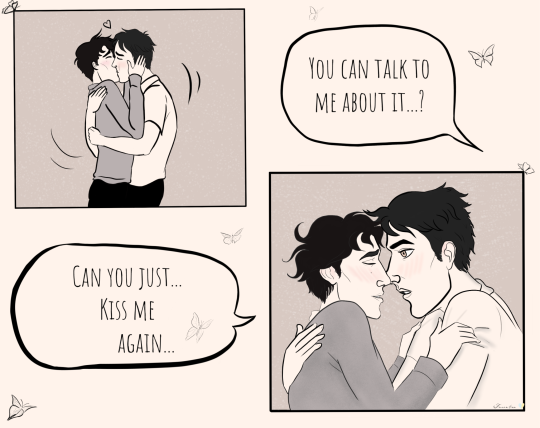
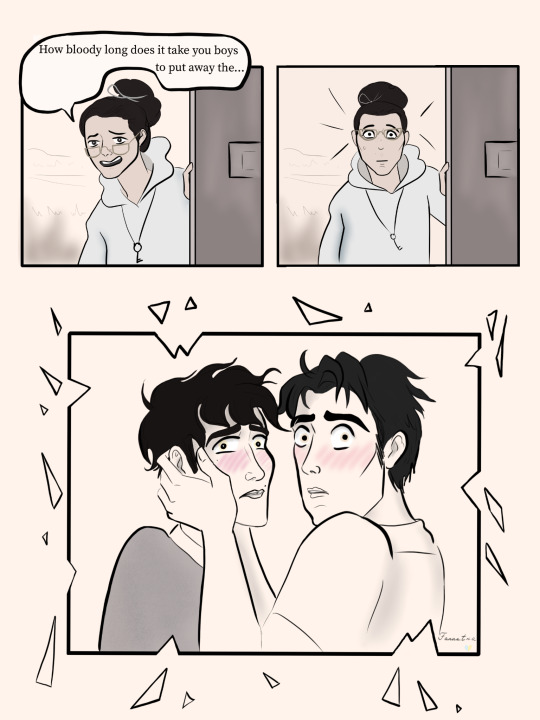
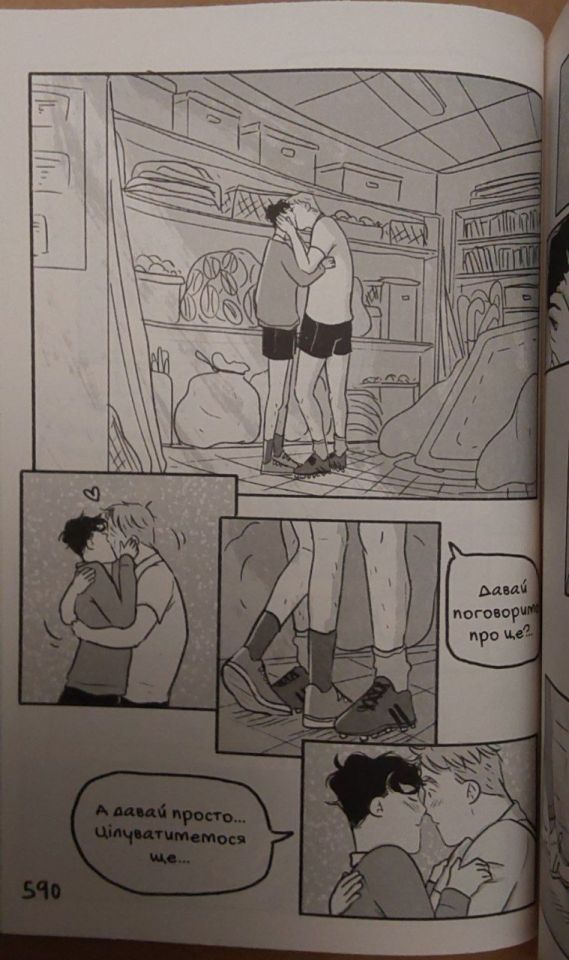
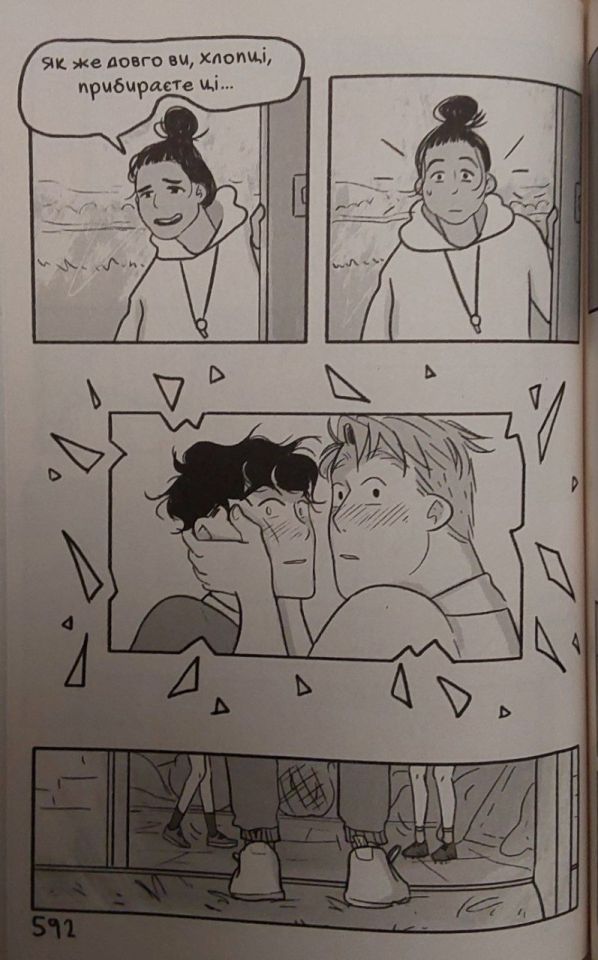
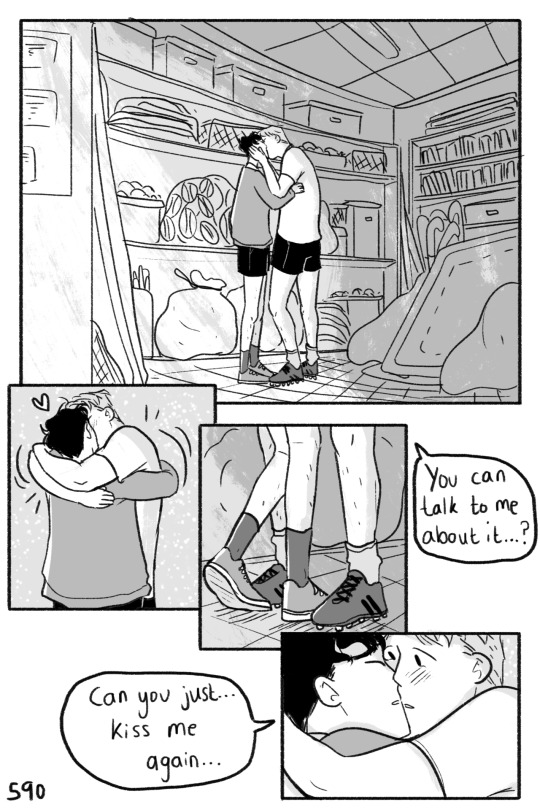
I really love Alice Oseman's Heartstopper series and I think Charlie and Nick are very similar to Viktor and Jayce. Especially in matters of caring for your partner and “Did you eat well today Charlie/Vik?” So here's a crossover where Viktor and Jayce met in high school.
I'm still not entirely sure what kind of activities they were involved in, whether it was sports like in Heartstopper or maybe they are now in the back room of the laboratory. Hmm, why not, let's imagine that Viktor is not yet lame and a wonderful runner, like Charlie. Perhaps because in Zaun running fast is an excellent skill for survival. They play some Piltie game like rugby, and once a boy from a group of bullies intentionally bumps into Vik and breaks his leg so that now he not only can’t play rugby, but has to walk with a cane. I can imagine Jayce's feelings, but beyond all the despair, guilt and rage, he would be an incredibly caring and supportive partner (sorry for this little angst moment).
But for now they are happily kissing in the back room, not at all expecting that Miss Young will suddenly catch them. I really like to imagine them as teenagers in love. I absolutely adore the couple Charlie and Nick, they are such a cuties, and I am very grateful to the author Alice Oseman for showing what a healthy relationship should be.
And many thanks to my Sunshine @slasher-art , who introduced me to both fandoms, watching them with you was a great happiness❤️🩷.
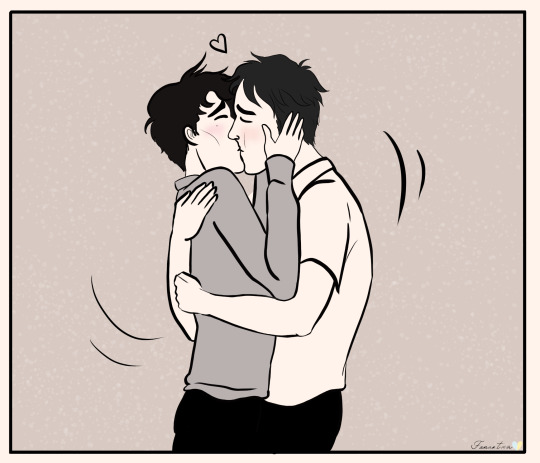
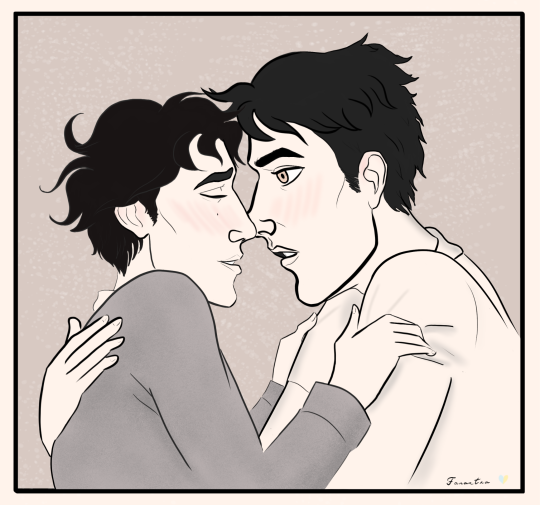

Unfortunately, I haven’t had time to buy volumes 4 and 5 yet, they were quickly sold out in Ukraine, so I’m waiting for an additional edition, but those pages of the comic that are in the author’s account intrigued me incredibly.
Jayvik has some kind of magic of its own - they fit perfectly into any universe, any fandom, with them it would probably be possible to make a crossover with even Robinson Crusoe, even with the game Plants vs. Zombies.
And now, re-reading Heartstopper, which I fell in love with because of Charlie and Nick, I can easily imagine Viktor and Jayce in their place. Just imagine how Vik gets bullied at school because he's gay from Zaun who doesn't even have a last name (until Jayce suggests his own, of course😏), how Jayce chivalrously defends him, how they start liking each other more and more, and how Jayce desperately tries to find a book about bisexuality because Google hasn't been invented in their world yet.
By the way, when I started translating phrases from Ukrainian back into English, I realized that they could be translated differently from the original, and I started looking for the right page from the author and guess what? Some pictures in my book and the one posted by the author do not match! I wonder if it was because the book was still available for pre-order at that time and Alice Oseman later changed some pages for printing?
So if anyone here has the third volume in English, I would be very grateful if you open page 590 and write whether your pictures are the same as in my book or the same as in the author’s account (whiter version up here⬆️). By the way, I really like the softer color of the pages, so I made the background a little different. And I'm going to redraw some more moments I like there.
Fans of Charlie and Nick, Viktor and Jayce and anyone else are welcome to comment, I really love discussions, even if we have opposite opinions, the main thing is to conduct the discussion civilly.
#my art#heartstopper#arcane jayvik#jayvik#my Jayvik era#fanartka art#fanart#my digital drawing#jayvik heartstopper#jayvik crossover#heartstopper crossover#jayce x viktor#vikjayce#vikjay#viktor and jayce#viktor arcane#jayce talis#young jayvik#ukrart#ukrainian tumblr#укртумбочка#артпідтримка#arcane 2#arcane#comics#artists on tumblr#Alice Oseman#nick x charlie#redraw#jayvik redraw
70 notes
·
View notes